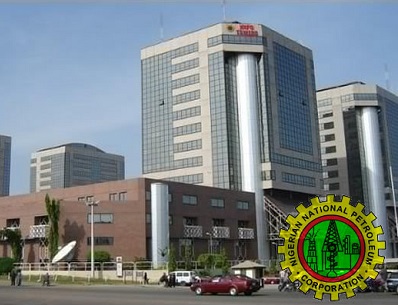
The Minister of State for Petroleum and Group Managing Director of the Nigerian National Petroleum Corporation (NNPC), Dr. Ibe Kachikwu says the corporation would recruit expatriates as part of the ongoing restructuring of the state-run oil company for efficiency and profitability.
In an exclusive interview with Thisday, hte NNPC GMD said the personnel restructuring of the corporation was only 25 percent completed, stressing that “75 per cent of the restructuring is yet to be carried out and it will involve recruitment of professionals from other parts of the world.
While he acknowledged the emotion about Nigerians being in charge of the NNPC, he insisted that the oil and gas industry was not where nationals just take charge alone as it as “it is an international business that requires international global best practice.”
“Despite the fact that there is a lot of closed up policies with everybody trying to keep it in-house, it is too big to be kept in-house. Nobody runs a company this huge like this. Look at NNPC; our upstream is in charge of 60 percent holdings in companies like ExxonMobil; like Total; like Shell and these companies in their own right are big enough for Nigeria and you are controlling the majority. Now, unless you want that majority control to just be something that is a paper tiger thing.
“But if you really want to bleed your asset and make sure that the asset earns you more, a huge amount of work is needed and you are going to need huge personnel. There are a lot of trained Nigerians who are leaving the industry today; we need to begin to bring some of them; we need to begin to bring expatriates,” Kachikwu explained.
He acknowledged that the NNPC’s salary structure would not be able to accommodate expatriates in its workforce, but he would not mind going outside the system to pay the expatriates.
“There are positions where bringing expatriates into NNPC are required – none of which exists right now. I mean, right now, I don’t have any single expatriate but going forward there will be expatriates who will get into the financial environments, control environments; technical production environments and help you get best practices. Even if I have to go outside the system to pay them because obviously our salary structure won’t accommodate them, then we work out consultancies with which they work with us for two years. If all they do is train Nigerians and change the concept; I won’t be the only one shouting myself hoarse everyday on the new model and that is coming. So, huge amount of changes are still coming in NNPC,” Kachikwu said.
“I know there is always emotion about Nigerians aiming to be in charge but oil is not where nationals just take charge alone; oil is an international global best practice thing. Get experts to join you; change culture, bleed the asset; get the best where you can. That is where we are focused,” he added.
He further stated that the NPDC with so much reserves and oil blocks, has not even paid the federal government for some of those blocks, adding that the company has also not been focusing on the reserves.
“Somebody needs to sit down and begin to break down asset things. Why are they producing 20,000 barrels? Why couldn’t they do 40,000 barrels? Is it a pipeline issue? Is it a funding issue? Is it a technical spill issue? You understand my point. That is what oil companies do; that is what we are trying to do and if we do that, that company has the capacity to produce for this country, in excess of 400,000 barrels per day. When we got in there, they were doing 80,000 barrels per day; now they are up to 120,000 barrels per day. If you add that with other operators there, they are up to about 200,000 barrels per day but quite frankly they have a capacity within a year to produce 400,000 barrels per day. At that point, they will be producing more than some of the majors that we have here.”
“So, it is no longer to keep the assets; you have got to bring in real experts to understand what they are doing; you have to address funding issues; you have to address costs; you have to address discipline and approvals; you have to address management. It is a business and we have to run like a model. Imagine if a Mobil couldn’t run because it needed to see me before approving everything. It will not move anywhere,” he added.




